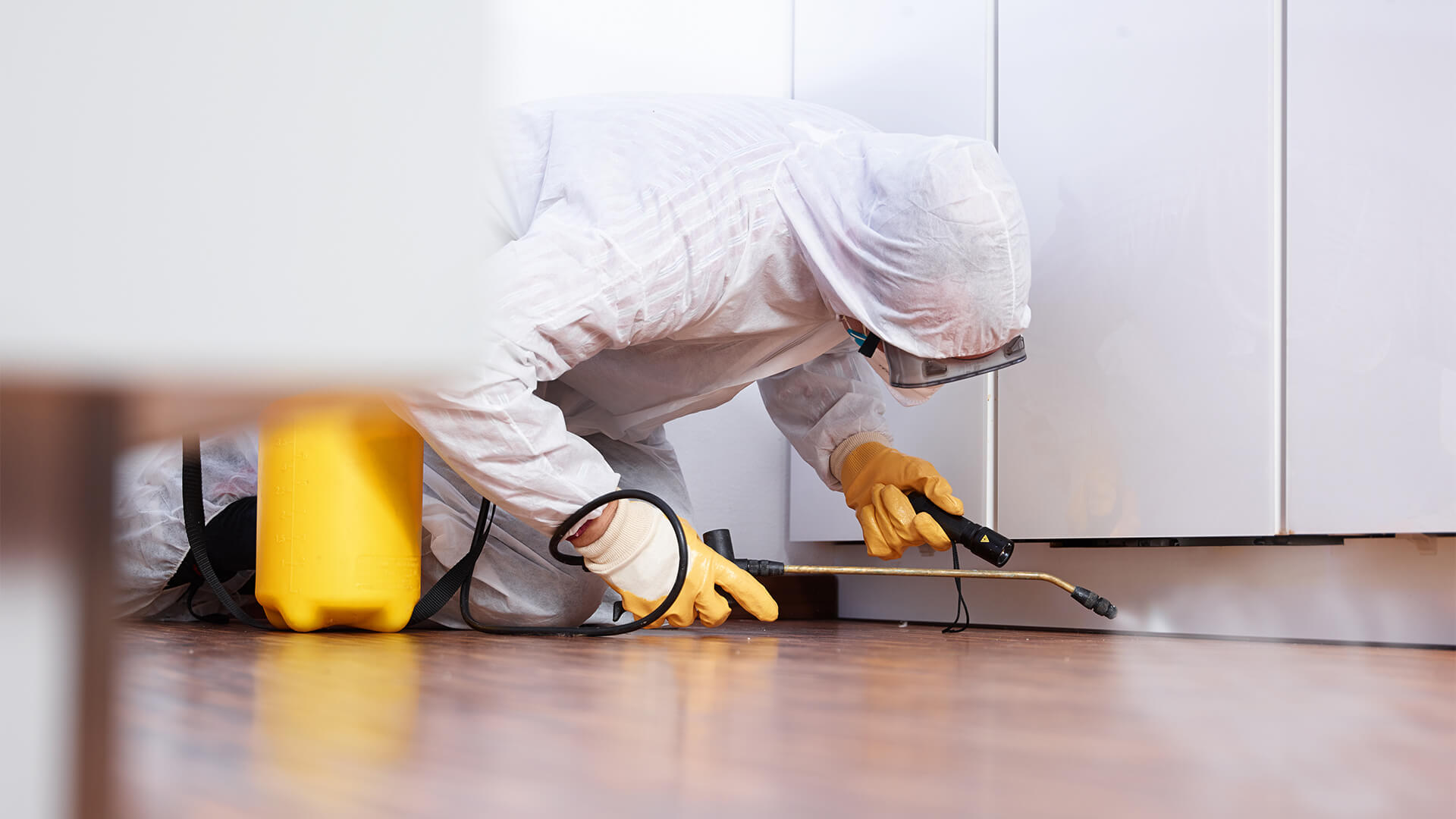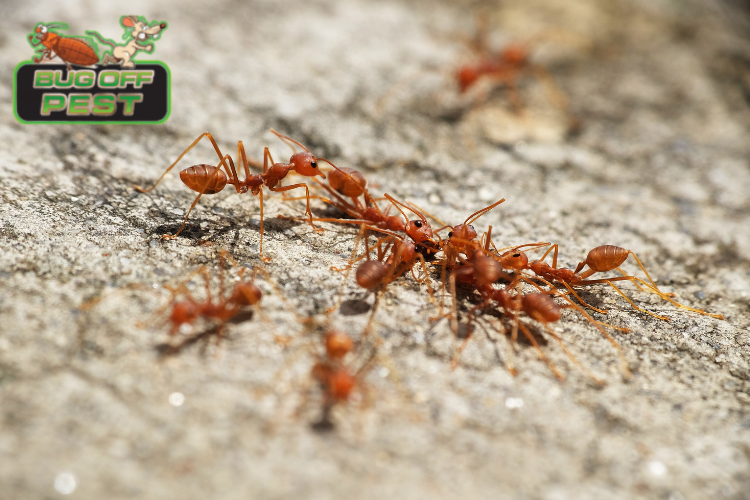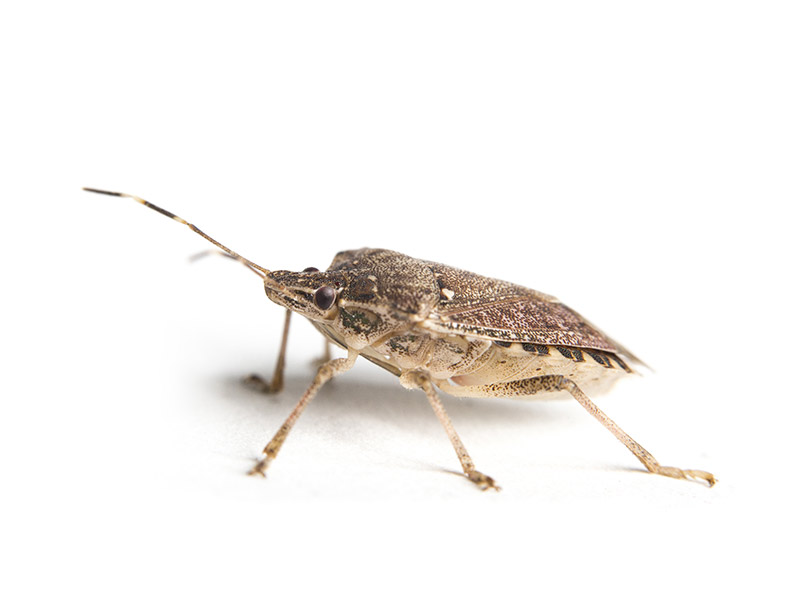Get rid of pests with expert Pest Control in Port Charlotte treatments.
Get rid of pests with expert Pest Control in Port Charlotte treatments.
Blog Article
Exploring Ingenious Strategies and Products for Efficient Pest Control
The landscape of pest control is evolving, marked by the development of innovative techniques and products designed to boost effectiveness and sustainability. From smart catches geared up with innovative surveillance systems to biological methods that employ all-natural predators, these developments offer a standard change in how we come close to pest monitoring.
Smart Traps and Monitoring Equipments
Just how can contemporary technology boost bug administration? One significant development is the advancement of wise traps and checking systems, which offer real-time data and analytics for reliable parasite control. These systems make use of sensing units and wireless technology to detect parasite activity, notifying residential property managers and pest control specialists to invasions before they escalate.
Smart catches are outfitted with functions such as lure stations that attract pests and catch them efficiently. These catches can be kept track of remotely, enabling prompt interventions and decreasing the requirement for substantial chemical applications. In addition, the combination of equipment discovering formulas allows these systems to distinguish in between target insects and non-target types, enhancing the precision of bug control steps.
Furthermore, the information collected from smart traps can be analyzed to identify patterns in pest actions and environmental aspects contributing to infestations (Pest Control in Port Charlotte). This information is indispensable for establishing targeted bug administration methods tailored to particular environments. By accepting wise traps and keeping an eye on systems, bug control experts can improve their operational effectiveness and decrease the ecological impact of bug monitoring, inevitably bring about much safer and much more sustainable techniques in the market
Biological Bug Control Methods
Utilizing all-natural predators and bloodsuckers, organic parasite control techniques provide an eco-friendly option to chemical treatments. This strategy entails the introduction or improvement of certain organisms that can naturally regulate bug populations, therefore reducing reliance on synthetic chemicals. Typical examples consist of making use of ladybugs to regulate aphid invasions and parasitic wasps to target caterpillars.

Biological control can be categorized right into three major techniques: classical, augmentative, and preservation. Classic biological control entails importing natural adversaries from the insect's indigenous environment, while augmentative control involves boosting the population of existing natural adversaries through releases. Conservation approaches concentrate on producing problems that sustain these helpful microorganisms in the ecosystem.
The efficiency of organic parasite control depends upon understanding the intricate interactions within ecosystems. It usually requires a detailed analysis of insect dynamics and the life cycles of both the parasites and their natural opponents. While organic approaches may not give immediate results like chemical alternatives, they add to long-term bug administration and ecosystem health and wellness. As recognition of ecological issues grows, organic parasite control methods are progressively acknowledged for their lasting duty in integrated insect administration programs.
Eco-Friendly Chemical Alternatives
Environmentally friendly chemical options offer a feasible remedy for parasite monitoring that lessens ecological effect while efficiently regulating bug populaces. These choices are stemmed from all-natural sources and are meticulously formulated to target details parasites without harming useful microorganisms, making them a vital part of lasting insect control methods.
Among one of the most reliable eco-friendly alternatives are plant-based pesticides, such as neem oil and pyrethrin, which are stemmed from the seeds and flowers of various plants. These materials disrupt the life process of insects, decreasing their populaces without the hazardous effects related to traditional pesticides - Pest Control in Port Charlotte. Additionally, important oils like pepper mint and clove oil display repellent buildings, even more enhancing their energy in insect monitoring

Additionally, eco-friendly chemical options often damage down quicker website link in the setting, decreasing the danger of dirt and water contamination. This characteristic aligns with the boosting customer need for lasting practices in agriculture and metropolitan pest control. As research study remains to breakthrough, the development of innovative environment-friendly formulas will even more boost effectiveness and expand application locations, allowing pest monitoring professionals to adopt greener, more responsible methods in their methods while securing human wellness and the setting.
Scent Disturbance Strategies
An additional cutting-edge approach in sustainable pest management is using scent disturbance techniques. These techniques exploit the natural chemical signals, or pheromones, that pests make use of for interaction, particularly in breeding habits. By disrupting these signals, parasite populations can be successfully handled without turning to damaging chemicals.
Scent catches are generally utilized in this technique. These have a peek here catches use artificial variations of insect scents to lure male insects, consequently lowering their ability to locate females and duplicate. With time, this can cause a considerable decrease in bug populaces. In addition, the launch of repellent scents can produce complication amongst bugs, additionally preventing their breeding procedures - Pest Control in Port Charlotte.

Integrated Bug Administration Approaches
Effective bug control often needs an extensive method, and Integrated Pest Administration (IPM) strategies provide a structure for achieving this goal. IPM integrates numerous administration techniques to lessen pest populations while minimizing dependence on chemical pesticides. This complex strategy starts with extensive surveillance and identification of parasites, enabling targeted interventions based on particular insect stress.
Social techniques, such as plant turning and sanitation, play a vital function in preventing insect establishment. Biological controls, including natural predators and parasitoids, are employed to maintain pest populations at manageable levels. When necessary, selective chemical therapies are used, stressing reduced poisoning to non-target varieties and the atmosphere.
Furthermore, education and outreach are important elements of you could try this out IPM, promoting awareness among stakeholders concerning lasting techniques and pest life process. The flexibility of IPM enables professionals to respond effectively to changing insect dynamics and ecological problems. By utilizing this holistic approach, IPM not just boosts bug control effectiveness but additionally adds to long-lasting ecological balance. Inevitably, Integrated Parasite Monitoring stands for a forward-thinking option that aligns farming efficiency with environmental stewardship, making it essential in modern insect control techniques.

Final Thought
To conclude, the combination of innovative methods and items for effective pest control represents a substantial improvement in lasting insect monitoring. Smart traps and checking systems, biological bug control methods, environment-friendly chemical alternatives, and scent interruption strategies collectively enhance the performance of pest administration approaches. By embracing these approaches, the reliance on traditional chemicals can be reduced, promoting environmental health while making certain effective insect control. Continued research study and growth in these locations will certainly further improve insect administration techniques.
Report this page